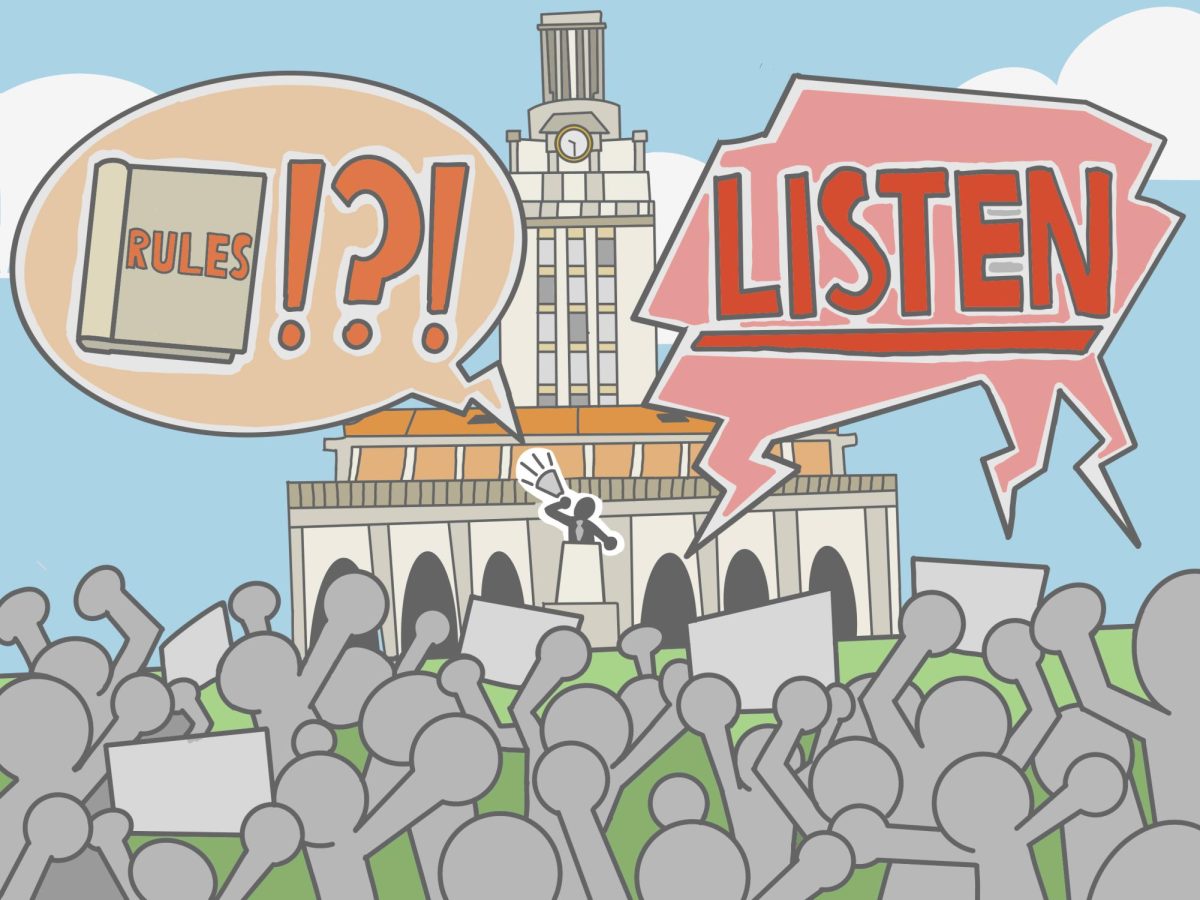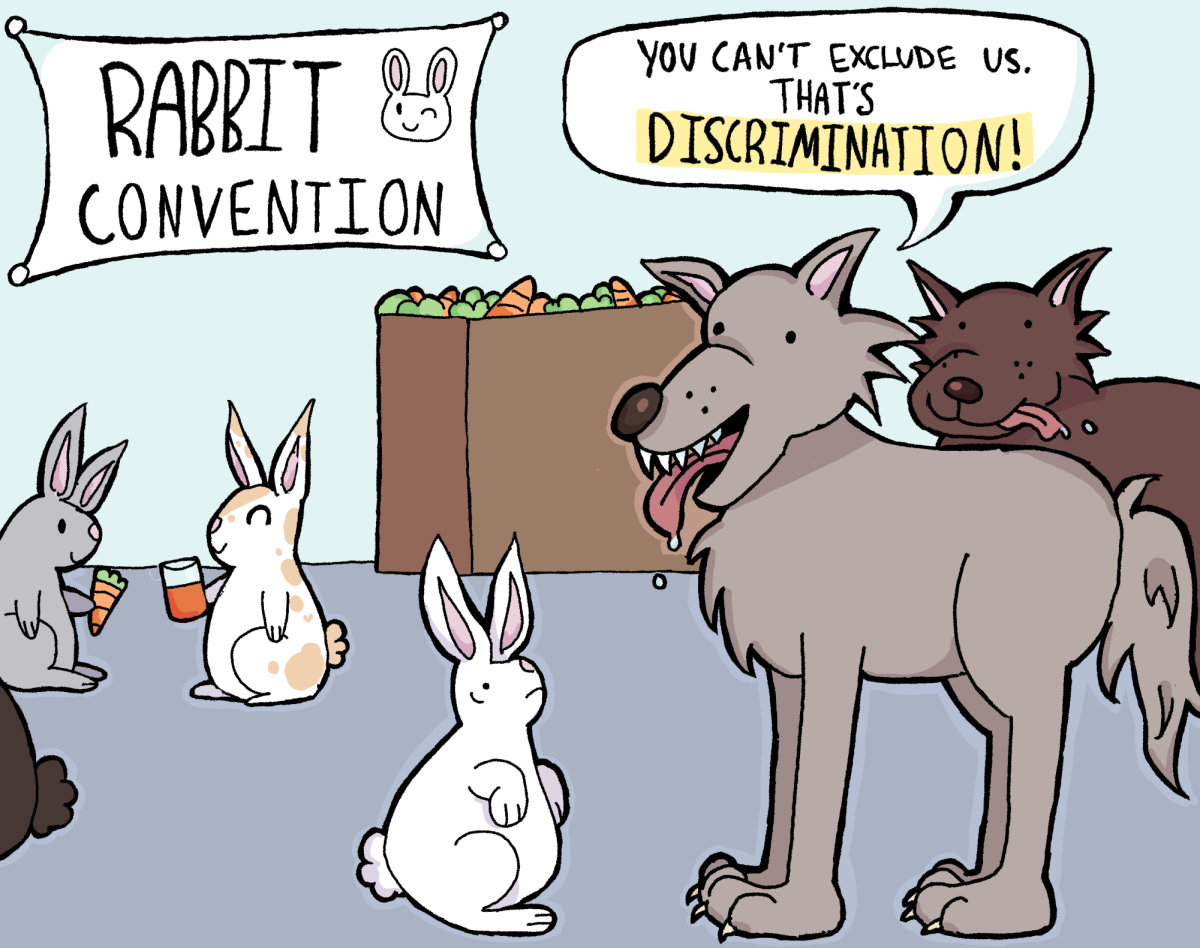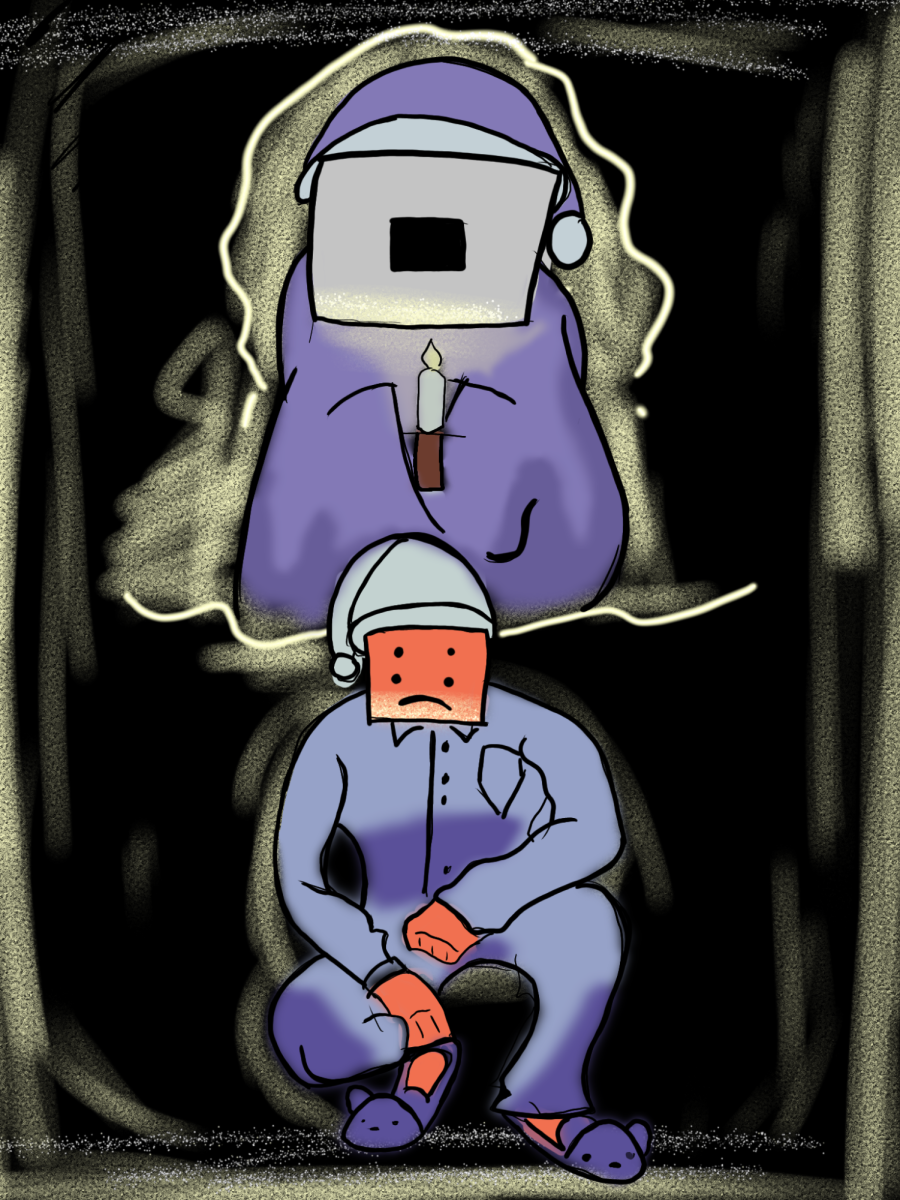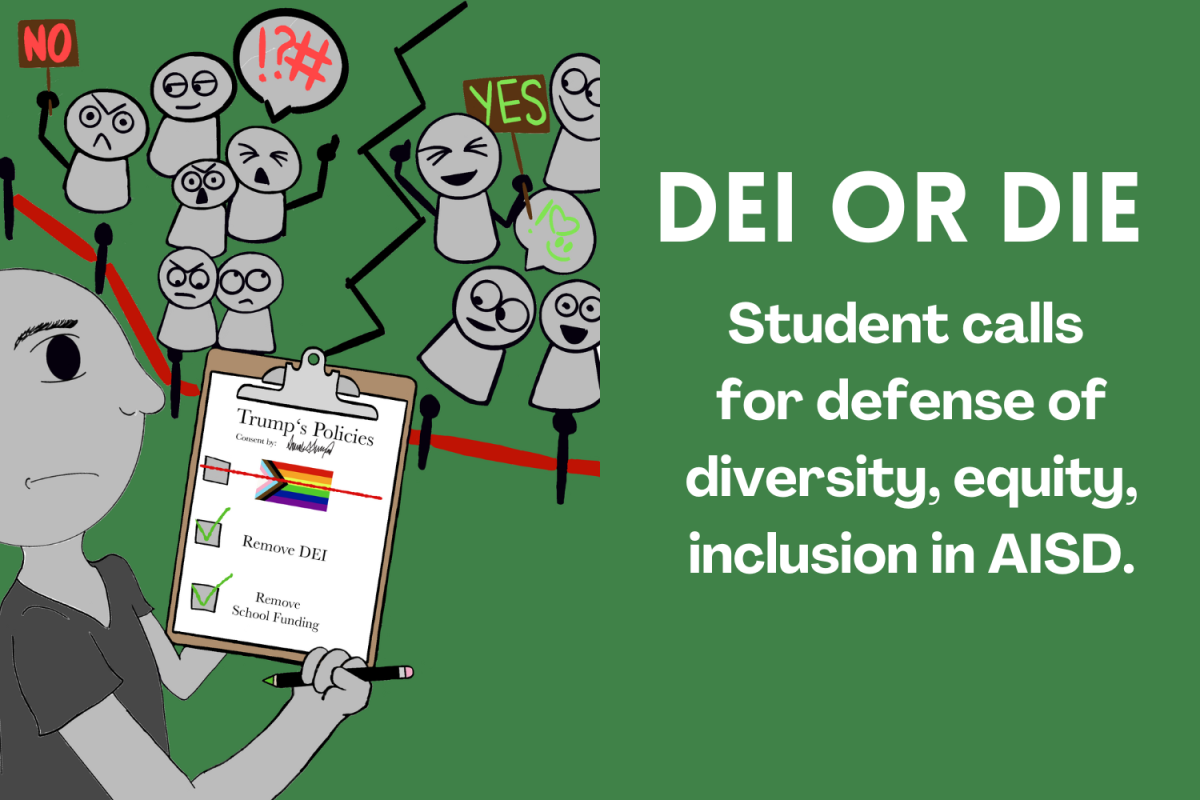On April 29, students of the University of Texas at Austin gathered on the South Lawn in front of the campus’ iconic tower ready to take part in encampments in support of Palestine. This time, it was worse than previous pro-Palestian protests as the students were arrested and pepper sprayed. Another protest on April 24 faced a similar heavy-handed use of law enforcement that surrounded and pushed out protestors from their gathering spots.
Leaders of the campus such as UT President Jay Hartzell have called for the dispersal of these protests to prevent them from severely disrupting a campus for a long period. Ironically, these university leaders are disrupting the constitutional freedoms of students, and have not been listening to their calls for change. Instead of shutting down these protests with force, these leaders could instead calm things down by showing that they are listening and taking seriously the concerns of students.
Unfortunately, UT has decided to resort to using brute force with officers using riot gear rather than civil discourse to settle these disputes, which is one of the higher purposes of higher education. Many students have been arrested after being pushed into unauthorized areas, according to The Austin Chronicle. These protests have been peaceful, although, with claims that students intended to riot, and while students should be allowed to protest, these protests need to remain peaceful. Many leaders of the state and universities argue the reason to shut down these protests is to avoid the vandalism that could occur or any violence. However, the only way students can exercise their freedom of speech and be heard is by allowing these protests to occur in a peaceful manner.
Our leaders have failed to listen to the students, and the people, failing to acknowledge the changes they are urging for. Gov. Greg Abbott instead said, “Students joining in hate-filled, antisemitic protests at any public college or university in Texas should be expelled.” Many protestors are demanding that the university divest from companies that supply Israel with resources, with no intent to be antisemitic.
The students aren’t the only ones upset over the President’s Hartzell’s action to these protests. Following how he handled the enactment of SB-17, along with the way he has handled the protests, faculty members and professors at UT Austin have signed a no-confidence in President Hartzell letter. This letter, signed by over 600 faculty members says “The President has shown himself to be unresponsive to urgent faculty, staff, and student concerns. He has violated our trust.”
We have also seen cases at universities in other parts of the country where students were allowed to protest and engage in a dialogue with school administrators, leading to agreements that ended encampments on campuses. The University of California – Riverside has announced that it will explore the redistribution of their investments to companies that do not provide Israel with weapons or artillery. This example proves that it is very much possible for an agreed solution with a complete conversation.
Leaders of our universities, states, and nation, are understandably afraid of violence, vandalism, and riots. However, it also appears that many of them also fear having conversations that can prevent protests from escalating. The leaders within our communities have to listen to the people and come to agreements that allow for the safe environments they desire.








